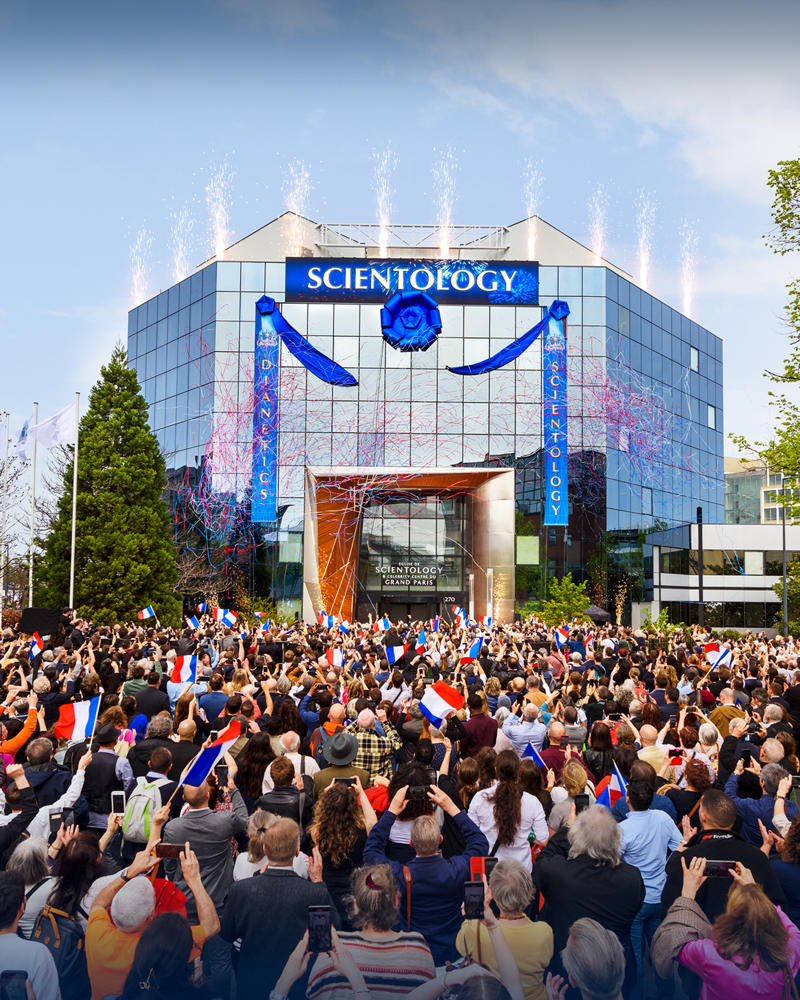Scientology Explained: Trick Concepts and Trainings Introduced
Scientology Explained: Trick Concepts and Trainings Introduced
Blog Article
Debunking Myths: Dividing Fact From Fiction Concerning Scientology

Beginnings of Scientology
The beginnings of Scientology trace back to the mid-20th century when L. Ron Hubbard, a scientific research fiction writer, started the idea system in the 1950s. Hubbard's advancement of Scientology came from his earlier self-help system called Dianetics, which he introduced in the 1940s - Scientology. The change from Dianetics to Scientology noted a shift in the direction of a more comprehensive religious viewpoint that integrated aspects of psychology, Eastern spiritual practices, and Hubbard's very own concepts on human existence
Hubbard's expedition right into the human mind and spirit led to the development of Scientology as a religion focused around the idea of spiritual knowledge and self-improvement via a process called bookkeeping. Auditing, a kind of spiritual therapy, intends to help people conquer emotional and mental obstacles, referred to as engrams, that prevent personal growth and understanding.
As Hubbard's teachings got popularity, Scientology evolved right into a global movement with a substantial following. Despite criticisms and conflicts surrounding its methods and ideas, Scientology proceeds to bring in fans looking for spiritual satisfaction and personal development.
Core Beliefs and Practices

Another essential element of Scientology is the idea of the Thetan, the spiritual essence of a person that goes beyond the physique. Followers intend to understand and reinforce their link to the Thetan via numerous practices such as research programs and filtration rituals.
The Church of Scientology also places a strong emphasis on the significance of personal obligation and the idea that people have the power to shape their own destinies. Through adherence to ethical guidelines and the pursuit of self-improvement, professionals of Scientology make every effort to attain higher degrees of happiness, success, and spiritual gratification.
Controversies and Objections
Amidst Scientology's core ideas and practices lies a landscape noted by debates and objections that have stimulated extreme argument and analysis. Additionally, Scientology's standing as a tax-exempt religious organization in some nations has actually been a factor of opinion, with doubters arguing that its methods are more similar to a business than a religious beliefs.
An additional area of dispute borders the Church's treatment of skeptics and critics. Records have actually emerged of harassment, scare tactics, and legal hazards directed at those who talk out against Scientology. This has actually elevated issues about free speech and the organization's dedication here are the findings to openness and responsibility.
While Scientology has actually emphatically denied a number of these allegations, the disputes and objections bordering the Church proceed to fuel public apprehension and examination.
Scientology's Impact in Culture
Scientology's influence prolongs to the realm of psychological health and wellness, where its views on psychiatry and psychology have actually sparked discussions within the medical area. In the realm of entertainment, Scientology's organization with high-profile celebs has brought focus to the religion, both favorably and negatively. The participation of well-known numbers in Scientology has, in some situations, offered to popularize the faith, while in others, it has attracted criticism and increased inquiries regarding the church's beliefs and techniques.
Debunking Common Misconceptions
What misconceptions concerning Scientology are frequently held and how can see page they be debunked? One typical misunderstanding about Scientology is that it is a cult. Nonetheless, the Church of Scientology is legally recognized as a faith in many nations, consisting of the United States, where it has tax-exempt condition. Like various other faiths, Scientology provides spiritual assistance and techniques for its participants.
Another mistaken belief is that Scientology forces its members to cut ties with their households. Actually, the church highlights the relevance of family members connections and encourages members to maintain healthy connections with their loved ones.

Conclusion
To conclude, it is very important to different reality from fiction when reviewing Scientology. By examining its origins, core ideas, controversies, and influence in society, we can expose common misunderstandings surrounding this religion. It is essential to approach the topic with a crucial and objective state of mind in order to comprehend Scientology precisely and without bias.
Rooted in a foundation of spiritual knowledge and individual growth, Scientology's core beliefs and practices incorporate a varied variety of concepts and rituals. Central to Scientology is the belief that humans are never-ceasing spiritual beings who have neglected their real nature. The involvement of famous numbers in Scientology has, in some situations, served to promote the faith, while in others, important source it has attracted objection and increased questions concerning the church's ideas and methods.
The Church of Scientology is legally identified as a religious beliefs in numerous nations, consisting of the United States, where it has tax-exempt status. Like various other faiths, Scientology supplies spiritual guidance and techniques for its members.
Report this page